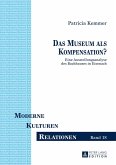Every society has its own definition of a normal and an abnormal human condition. For persons living with mental disorders, these concepts have a tremendous impact. This study investigates how the abnormal mind is culturally defined in Mala i, South-Eastern Africa. Based on anthropological techniques such as interviews, participant observation, and archive research, it explores the different social dimensions of mental disorder - e.g. its reflection in traditional dance rituals, in behavioural rules during pregnancy, or in the healing ministry of independent churches. It demonstrates how local explanations of mental disorder - be it witchcraft, an angry ancestor, or the will of God - determine the social acceptance of an affected person's condition. Recent processes of cultural change, however, strengthen the pluralism of Mala ian religious landscape, opening the local debate to an ever wider range of interpretations.








